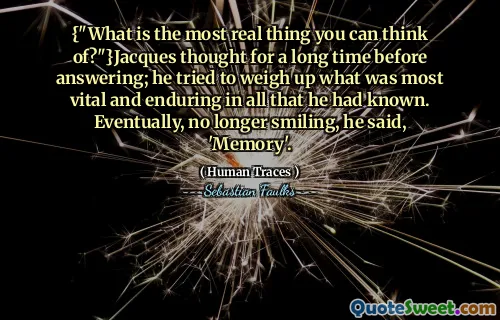
That's why you have to go and guilt him for all the trouble. It can't be your fault that you lost your memory if he wasn't smart enough to tell you about the wine.
This quote delves into the complex interplay of blame, memory, and responsibility. It suggests a scenario where an individual, perhaps suffering from memory loss, is being manipulated or held accountable for circumstances beyond their control. The speaker implies that it is unfair to attribute fault to someone who is unable to remember, especially when the cues or information necessary to avoid trouble were not adequately communicated by others. This points to themes of miscommunication and the unfairness of blame shifting. In the context of 'The Broken Court,' where power dynamics and personal conflicts are likely prevalent, this quote resonates as a commentary on justice and personal accountability. It underscores how blame can sometimes serve as a tool for evasion or manipulation, especially when one lacks full awareness of events. Memory loss adds a layer of vulnerability, making it morally questionable to hold the individual fully responsible for actions they don't recall. The mention of guilt and the example of wine further evoke a scene where subtle cues or social etiquette are missing or manipulated, leading to misunderstandings. This passage prompts reflection on how society assigns blame and the importance of understanding context before pointing fingers. It encourages a deeper look at personal responsibility, especially when circumstances are compromised by incomplete information or intentional misdirection, which can be a recurring theme in intricate courtly or personal conflicts often depicted in stories like 'The Broken Court.' Ultimately, it reminds us to consider the broader picture before assigning blame—recognizing the limitations of memory and insight in complex social situations.




